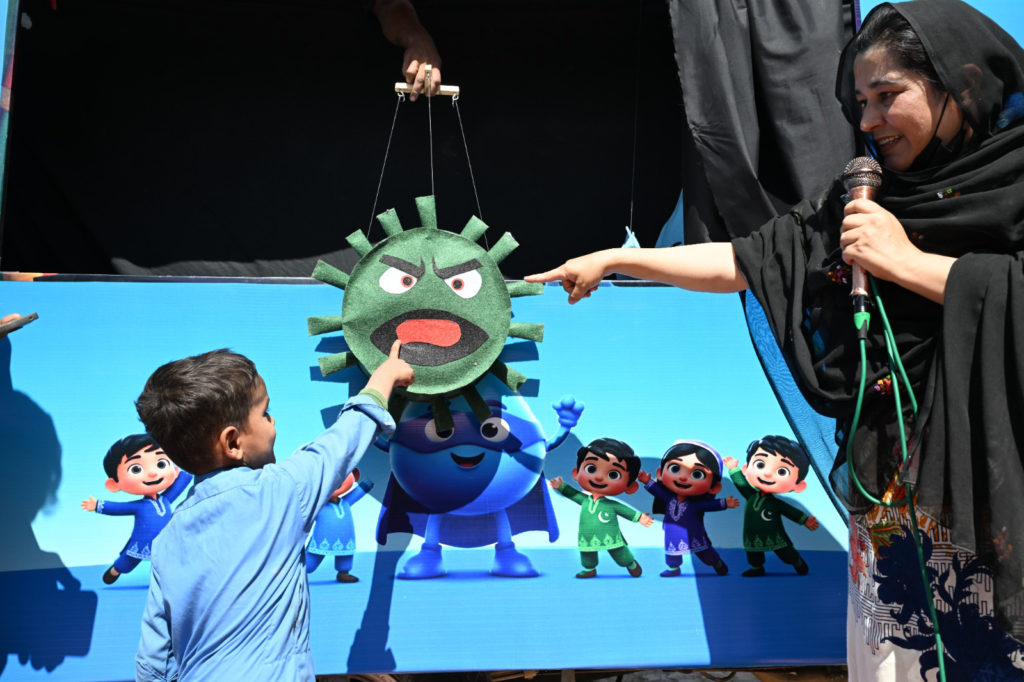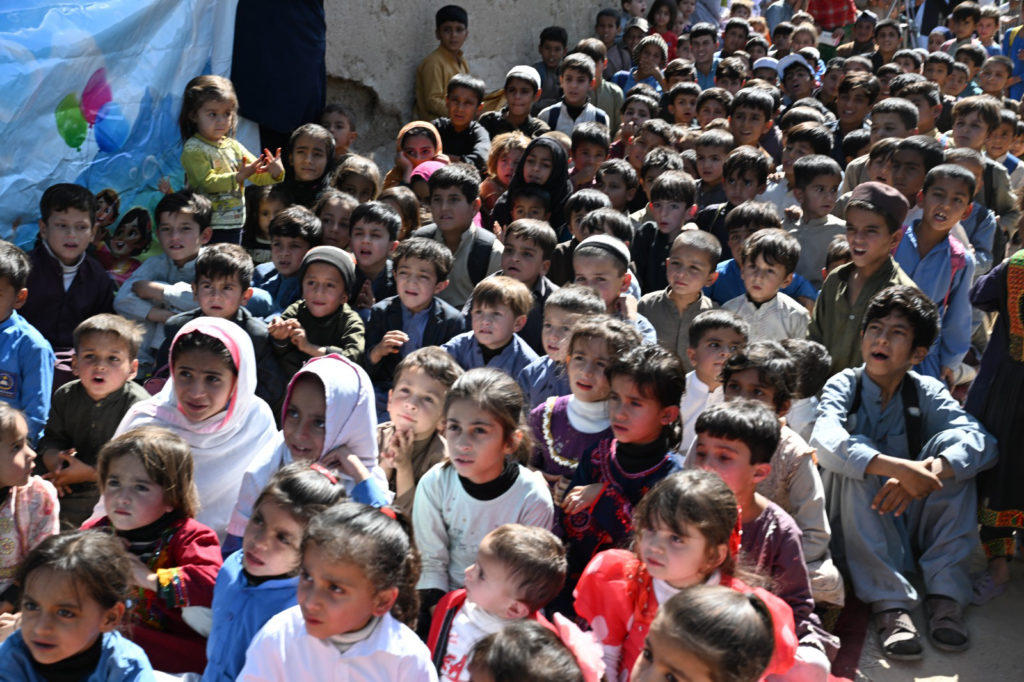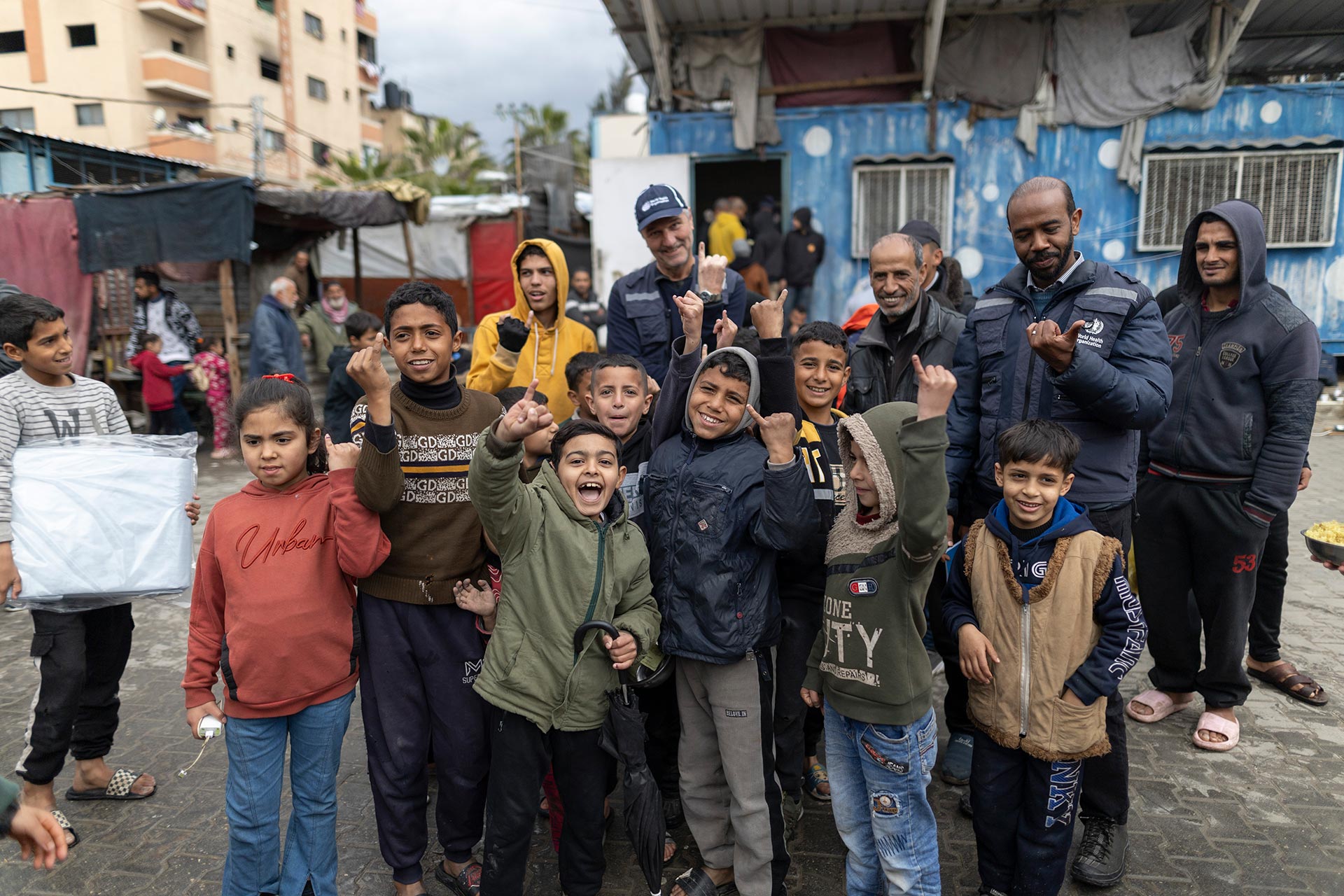Rehan, a lively seven-year-old with curious eyes, couldn’t stop smiling as he watched ‘Mr. Polio Drop’ chase away the mischievous ‘Mr. Virus’ on stage. Each time the puppets asked a question, Rehan’s hand shot up, “Polio spreads when we don’t take drops!” he answered proudly, earning a small gift and a round of applause from the crowd.
The Polio Caravan Puppet Shows in Quetta, Balochistan, Pakistan on World Polio Day transformed ordinary streets into cheerful learning spaces. The performance used colour, music, and humour to spread accurate information about polio vaccination, routine immunization, cleanliness, and handwashing, making serious health lessons simple and joyful for children and parents alike.
Children sat cross-legged in front of the mobile stage, eyes glued to the puppets, answering every question with excitement. Four-year-old Najeeba proudly showing her prize, said, “I won because I was neat and clean and told everyone about washing hands!” For many of the children, it was their first exposure to a learning activity presented through laughter, colour, and characters they could relate to – a refreshing change that blended fun with awareness. “I saw puppets for the first time. I’ve having so much fun! We’ve never had something like this in our area,” said six-year-old Ahmed, smiling from ear to ear.

It was a heartwarming sight as parents, some holding toddlers by the hand, others cradling newborns, walked toward the puppet show smiling, relaxed, and curious. What began as a moment of entertainment soon turned into a mini vaccination drive: within 30 minutes of the show, more than 200 children received polio drops at the six sites located in the polio high risk areas in Quetta, including many from families that had previously refused vaccination.
The mobile puppet show was conceptualized by the provincial Polio SBC team in consultation with the Communication Task Team under the guidance of the Balochistan Emergency Operations Center (EOC).
Inam-ul-Haque, the Provincial EOC Coordinator, strongly believes that such engaging and community-based activities are critical in keeping polio awareness activities interesting and relevant to children and their parents. “We will continue working with communities beyond World Polio Day in creating activities that are fun and meaningful for the health and well-being of all children in Balochistan,” he added.

The event’s success lay in its simplicity; merging fun, learning, and real-time immunization. The joint messages on vaccination, hygiene, and health resonated strongly with the community, showing that creative communication can bridge gaps where words alone may fail.
“It was wonderful to see how quickly the atmosphere changed,” said Shahpur Suleman, UNICEF’s polio SBC team lead in the province. “Even vaccine hesitant parents were laughing with their children and bringing them for vaccination. This kind of trust is what keeps the eradication program moving forward,” he added.
As Rehan waved goodbye to his new friend, ‘Mr. Polio Drop,’ his father smiled and said softly, “Our door will always be open for the polio vaccination team.”
Pakistan, along with Afghanistan, are the last two polio endemic countries in the world. Despite the current global funding challenges, critical support from committed partners like Canada, Japan, Gates Foundation, Germany, KSRelief, Rotary International and the UAE are helping polio workers in the two countries continue the vital work of reaching every last child towards achieving the goal of a polio free world.



